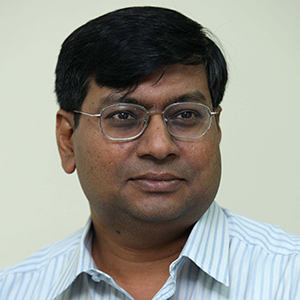 The Kedah menteri besar crisis, which is unfolding at the time of this writing, opens a window for the state’s voters to examine the gap between the promise of democracy and the exigencies of politics.
The Kedah menteri besar crisis, which is unfolding at the time of this writing, opens a window for the state’s voters to examine the gap between the promise of democracy and the exigencies of politics.
As the signs confirming the impending departure of Datuk Seri Mukhriz Mahathir become clearer yesterday, the questions about why the incumbent is facing an internal revolt become prominent. Also pertinent is the inquiry into how a change of leadership would impact the state.
While a band of 14 Umno division chiefs, state and federal lawmakers declared last Wednesday that they had lost their confidence in Mukhriz for his purported failure to govern the state, unite the party and for his lack of strategy to face the next general election, other voices indicate that the revolt stems from political strife within Umno.
Closest to home is the clarification by Kedah MCA leader Chua Tiong Gee that neither he nor Datuk Dr Leong Yong Kong, the two state assemblymen from the party, had signed any statutory declaration supporting the removal of Mukhriz as menteri besar.
“This is Umno’s internal problem, so we leave it to Umno to sort it out themselves,” he told Malay Mail Online.
The Umno leadership’s stance in the matter was made clear by its secretary-general Datuk Seri Tengku Adnan Mansor who stated that there was no cause for disciplinary action against the 14 division chiefs for their revolt against Mukhriz.
None of this is surprising in the light of the belligerent campaign by Mukhriz’s father, former prime minister Tun Dr Mahathir Mohamad, to unseat Prime Minister and Umno president Datuk Seri Najib Razak for a full year and more.
This would also explain why Mukhriz would have to go despite the negative impacts that the mutiny would have on the image of the Barisan Nasional coalition as a coherent political front. Party veterans and observers are already predicting a poorer outcome for Umno in the next state election, which must be called by 2018.
Another aspect of the Kedah leadership crisis that is noteworthy is the non-engagement with the state assembly to establish whether Mukhriz has the support of a majority of the House. As the Kedah constitution states that a menteri besar can only be removed if he is shown to have lost the confidence of the majority through a vote taken in the assembly, the rule of law is weakened if this is not done.
Naturally, this situation invites comparisons with previous episodes involving the replacement of menteris besar in Kedah as well as other states. In the most recent of these crises, the Selangor government was embroiled in a nine-month-long conflict in 2014 when the then-Pakatan Rakyat coalition sought to remove Tan Sri Khalid Ibrahim as menteri besar.
After a long build-up, the crisis broke when Khalid was sacked from the PKR, which questioned his integrity in relation to several court cases. Following that, PKR president Datuk Seri Dr Wan Azizah Ismail declared at a press conference with Pakatan Rakyat assembly members that she had the majority support of the House and her name was submitted to the palace as the PKR and DAP’s sole candidate for the menteri besar’s post. In the end, the Selangor Sultan chose Azmin Ali to fill the vacancy, but not before the Pakatan’s image had been tarnished by the protracted squabble.
In such an episode, the question of how the people’s interests are being advanced in the tussle for power naturally arises. It is in these situations that the lack of a culture of public participation in the political process becomes especially noticeable.
There is a ring of truth in the often-expressed view that democratic participation, for a majority of the people, is limited to casting their ballots once in four or five years. For a more meaningful say in how the ship of state is being run, voters need to invest time and effort into engagement with their representatives, staying informed about governance issues and monitoring their leaders’ performance in the legislative chambers.
For those imbued with a spirit of political activism, this will require investment in systematic work to educate the electorate about the importance of broadening the base of political participation. Engagement with advocacy groups to promote accountability and ethical conduct in public office is an effort we must be willing to make for democracy to flourish.
But before the people can develop an appetite for promoting ideals like good governance and democratic rule, they need to rise above the preoccupation with satisfying their basic needs. For a large proportion of the population, unfortunately, the struggle to attain a decent standard of living stands as a major obstacle in the way of entertaining more sophisticated motivations.
For a majority of the people of Kedah, the primary concerns of earning enough for their needs and accessing basic services may be all they can manage to deal with for now. From their point of view, the fighting that is going on among politicians is too far removed from their daily lives to make much sense in practical terms. – January 30, 2016.
* This is the personal opinion of the writer or publication and does not necessarily represent the views of The Malaysian Insider.


Comments
Please refrain from nicknames or comments of a racist, sexist, personal, vulgar or derogatory nature, or you may risk being blocked from commenting in our website. We encourage commenters to use their real names as their username. As comments are moderated, they may not appear immediately or even on the same day you posted them. We also reserve the right to delete off-topic comments